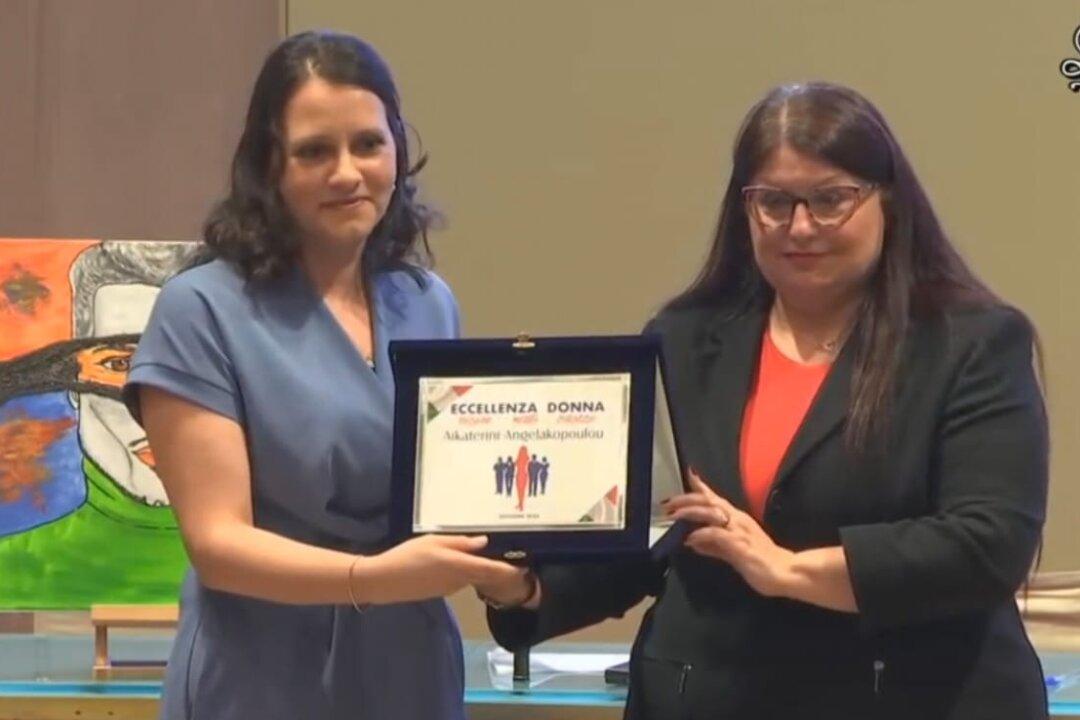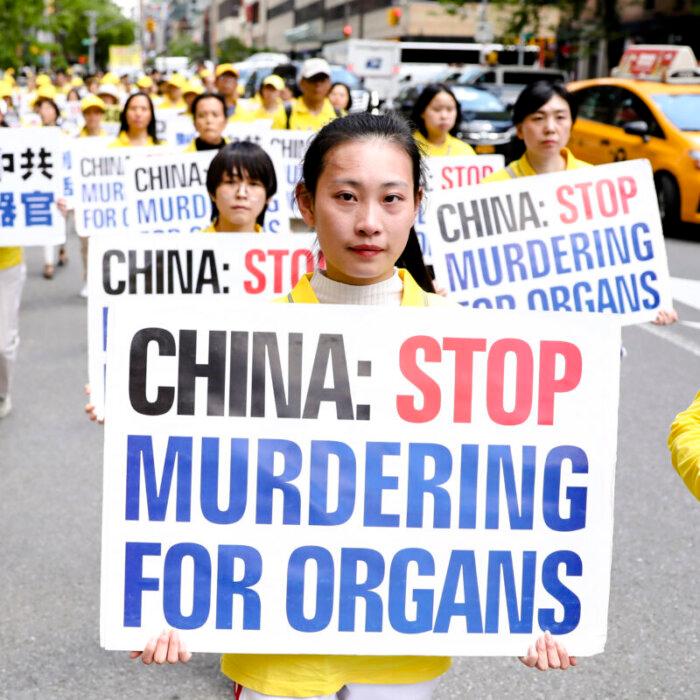Women from all walks of life were invited to the Italian senate to share their stories. Among them was a doctor dedicated to safeguarding medical ethics and exposing an ongoing yet little-known crime against humanity.
The Stories of Excellent Italian Women event, held on March 21, honored women who have distinguished themselves through their service to others and contributions to the community.
“We want to overturn the narrative that too often paints women only as victims of hardship and discrimination,” Sen. Cinzia Pellegrino, a member of Italy’s ruling party and the event’s sponsor, said. “In Italy, there are so many extraordinary women who deserve to be recognized for what they truly are: examples of courage, competence, and success.”
One of the award recipients was Dr. Katerina Angelakopoulou, a member of Washington-based medical ethics advocacy group Doctors Against Forced Organ Harvesting (DAFOH).
In China, according to DAFOH, the common standards of organ donation are turned upside-down. Instead of patients being placed on a waiting list until a suitable donor is found, potential donors are incarcerated as prisoners of conscience and used as a living organ bank. The organization believes that this is made possible through state-sanctioned, systematic murder on demand as part of the Chinese Communist Party’s (CCP) persecution of Falun Gong.
A Doctor’s Mission to Save Lives
A Falun Gong practitioner herself, Angelakopoulou serves as president of the Italian Falun Dafa Association and has spent years raising awareness about atrocities perpetrated against practitioners, particularly forced organ harvesting, by the CCP.“I learned about this persecution when I was a medical student. Since then, first as a student and then as a doctor, I have dedicated my life to stopping it—to saving lives,” Angelakopoulou said in her speech.
Emphasizing the moral responsibility of the medical profession, she said she has consistently warned patients against traveling to China for transplants, urging them to avoid unknowingly becoming complicit in the communist regime’s crimes.
“We must inform patients and doctors to prevent them from becoming accomplices to crimes against humanity,” Angelakopoulou continued. “A transplant to one of our patients in China would most likely mean that a Falun Gong practitioner would be killed.”

Voices of Support
Another award recipient, Dr. Bich Lien Nguyen, a cardiologist and university researcher, spoke in solidarity with victims of forced organ harvesting, which also includes Uyghur Muslims and Chinese Christians.“These are atrocious crimes that we, living in a democratic society that safeguards individual freedom, can hardly even conceive,” Nguyen said. “I absolutely stand in solidarity with everything that has been said—these are atrocities that should not happen anywhere in the world.”
Anthropologist Vienna Eleuteri, also honored as an “Excellent Italian Woman,” noted that while she was aware that such horrors existed, she had not known the full extent of this particular case.
“The issue of human rights, from an anthropological perspective, is very important—not just as a theoretical or general exercise,” Eleuteri said. “I believe there is a real need to rethink the topic so that human rights truly become the rights of everyone. There is much to discuss on this matter.”
As a member of the Italian Senate’s Human Rights Commission, Pellegrino commended Angelakopoulou’s dedication to exposing the crimes against Falun Gong practitioners.
“I would like to emphasize how valuable and important your commitment is—far from taken for granted—in defending the human rights of a religious minority persecuted by the Chinese regime simply for upholding principles of freedom and self-determination,” she said.
She said that Beijing could “learn a great deal from Falun Dafa’s altruistic, compassionate, and community-centered approach.”
“There is no need to convert, only to remember that every human being has the right to the inviolability of their body and free thought.”







